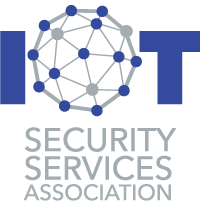The question that comes up in the channel with every new technological innovation isn’t about “speeds and feeds” or the various ways those applications are supported. MSPs want and need to know how new solutions can help them make more money.
When topics such as IoT, AI, robotics, and even drones come up at a channel event, the financial side of those innovations often garner the most questions. That always seems to shock vendor executives from outside the industry who assume the MSPs will be completely captivated with cutting edge technology and start signing up in droves. Any experienced channel professional knows it doesn’t work that way.
MSPs are businesses that serve other businesses. The solutions and services they sell must make sense to the companies and users they support. Not just from a financial perspective, but also based on the value each offering brings to the organization. MSPs must consider the implications of providing, implementing, and maintaining next-gen technologies for everyone in their ecosystem.
The road to innovation can be rocky and eat into an IT service firm’s profitability. Those are two reasons why the channel has taken more of a “leading-edge” than a “bleeding edge” approach in the past. However, in many industries, those days are gone. Your SMB clients’ need innovation to keep pace with competitors and best serve their own customers today.
IoT Leads the Way
The skeptics suggest the Internet of Things won’t benefit the channel for years, if ever. A lack of true SMB applications is the often-cited concern, as well as relatively few vendors actively promoting their offerings and programs to the SMB community.
The problem with that argument is that IoT, using the most common definition, has been around for years and, through specialized distributors, relatively well supported. I started covering the channel more than seventeen years ago when the RFID and access control market was just getting started, and the business use cases for those technologies continue to grow with each internet-connected device launch.
Nearly two decades later, there’s still a lot of mystery around IoT from both an MSP and customer perspective. Fortunately, the availability of information and educational resources is rising, and, in most cases, the vendor community has taken the initiative to highlight more business solutions for these technologies.
The key for MSPs is matching those applications to real client needs. Industry experts tend to associate IoT with specific vertical market solutions, but savvy providers are capitalizing on the benefits these technologies offer to all organizations, including those that deliver building management and physical security functionality.
Anything that connects to the internet should be seen as either a threat or opportunity to MSPs. If not correctly implemented, secured, and monitored, IoT devices are a danger to the organization as well as to anyone whose data resides in that company’s collection and storage systems. MSPs can profit by providing those support services and alleviating those concerns.
The Business Cases
IoT is no “field of dreams,” but before clients start showing up with wads of cash, you need to turn potential concepts into practical business applications. Which technology solutions could improve your customers’ operational efficiency or meet an unsatisfied need?
The ideas and real-world examples are multiplying. There are basic IoT devices that improve a single process, like smart solutions that dim or turn off based on movement or time, or with a remote app. More complex systems may rely on global positioning technologies, wireless networks, and artificial intelligence. Either way, MSPs can play a role in the design and roll out, provide ongoing monitoring and maintenance, and deliver complementary network and cybersecurity services and support.
Lucrative IoT opportunities are everywhere, including these five examples:
- Transportation/ Fleet Management
IoT solutions can provide detailed real-time information on vehicle location and usage, manage routing, and track maintenance cycles. These applications can inform customers when orders or service professionals will arrive and show (map) their current positions, which saves time and frustration for both parties. IoT helps companies improve the efficiency and safety of fleet vehicles by detecting poor driver behavior and ensuring adherence to company policies. For example, MSPs can offer cloud-based tracking software to allow their trucking clients to track bad behaviors such as speeding, pro-longed idling, and severe braking. These solutions also help keep fleet vehicles in optimum condition, preventing costly (and unproductive) downtime.
- Manufacturing
You don’t have to support Fortune 500 companies to deliver relevant IoT solutions. From regional tool and die shops to 100-employee or smaller manufacturing plants, these applications create greater efficiencies from design and engineering to production. For example, channel professionals can deliver solutions that allow manufacturing clients to view equipment conditions real-time with alerts that notify maintenance teams when sensors detect potential problems.
- Facility Management/ Security
Virtually every business can benefit from IoT. Look around and imagine the opportunities to implement smart cameras, smoke and Co2 detectors, water sensors (flood prevention), door locks, access controls, HVAC, and lighting solutions for your clients. Some MSPs wrap those systems into a monthly service offering to generate incremental recurring revenue streams.
- Asset Management
The chances are good that some of your clients could use real-time tracking capabilities for certain equipment. Can they quickly locate valuable assets when needed — whether on-premise or deployed in the field — and ensure everything is where it needs to be when it has to be there. With a quality partner to supply tags (i.e., barcodes, QR codes, NFC tags) and asset management software solutions, MSPs can support a variety of businesses, including equipment rental stores, construction and trucking companies, and tool shops.
- Medical Monitoring
The healthcare industry is leading the way in IoT adoption with a variety of applications that allow patients with serious medical issues to enjoy higher-quality lives. MSPs can support doctors’ offices and hospitals in a number of ways; from supplying data collection, backup, and network solutions, to delivering cybersecurity and vendor-specific support.
5 ½. Smart Cities
While the latest municipal internet-driven initiatives are driving innovation, two factors are keeping these technologies from being a substantial channel opportunity today ̶ though that may change soon (thus the 5 ½ designation). The first limitation is infrastructure. Even the most advanced Smart City projects can’t meet all their objectives due to bandwidth issues and coverage problems in certain areas.
MSPs can help fill gaps with wireless technologies and other creative solutions, but until government officials and ISPs bring more communities into the 22nd century, the opportunities for channel professionals will remain limited.
Onward and Upward
Are you ready to make real money with IoT?
Savvy MSPs are scouting the opportunities with their current clients and exploring the options these technologies present to expand into new and more lucrative markets. With a little research and creativity, IoT can increase your portfolio, bottom-line, and customer value.
Brian Sherman, Content Director, IoTSSA








Leave A Comment